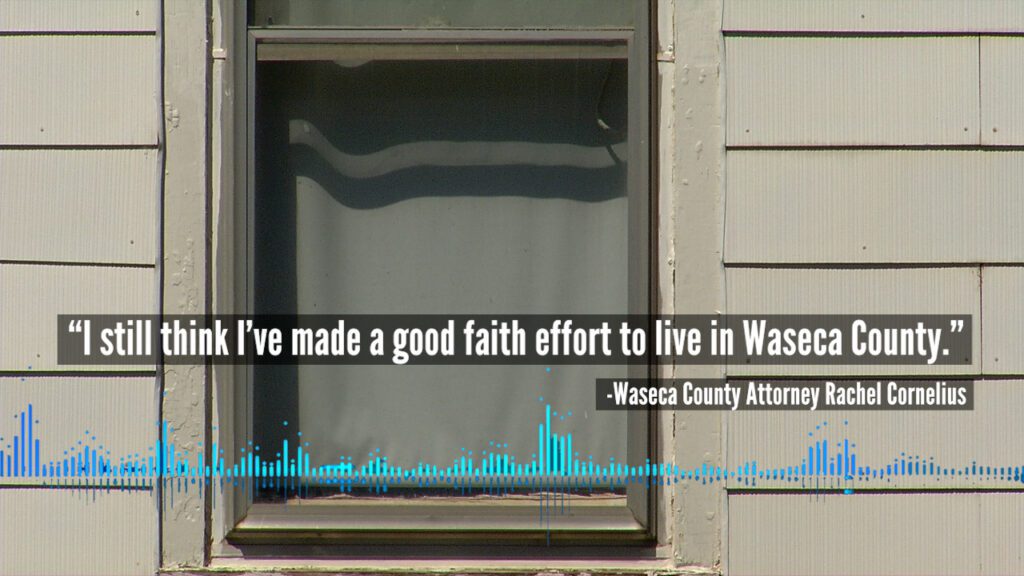But as attention now turns to the reality of the case and what it means, something else Yost claimed Monday on Fox News looms large: that the girl didn’t actually have to leave Ohio to seek the abortion in Indiana, as she reportedly did.
“Speaking of hoaxes, though, can I correct something that everybody’s reporting wrong nationally?” Yost asked the host.
He continued: “Ohio’s heartbeat law has a medical emergency exception broader than just the life of the mother. This young girl, if she exists, and if this horrible thing actually happened to her — breaks my heart to think about it — she did not have to leave Ohio to find treatment.”
Yost’s appeared to be arguing that Ohio’s law — which bans almost all abortions after a heartbeat can be detected, usually around six weeks — isn’t actually so stringent that it would actually force a 10-year-old rape victim to carry a child to term. That aspect of all this is important in light of the GOP’s controversial post-Roe plans, which often include not providing abortion exceptions for rape and incest. It’s why the case became big news in the first place.
Yost’s meaning wasn’t entirely clear. Some took his comment as claiming Ohio has a rape exception in its abortion ban; it clearly and unambiguously does not. The applicable law allows abortions after a fetal heartbeat is detected:
- “to prevent the death of the pregnant woman” or
- “to prevent a serious risk of the substantial and irreversible impairment of a major bodily function of the pregnant woman”
Yost didn’t say there was a rape exception. He was apparently arguing that a 10-year old would qualify under one of the actual exceptions — probably the latter, given that it’s the one that’s “broader than just the life of the mother.”
Some wagered that a pregnant 10-year-old would trigger that exception. An opinion piece at the conservative Washington Examiner puts it like this:
Even if a girl gets her first period at 10 or younger, she likely has not developed a pelvis capable of safely carrying a pregnancy to term, let alone delivering a live baby. Although most conservatives may disagree with Ohio’s six-week abortion ban failing to include a rape and incest exception, just about nobody of note in the pro-life movement would ever favor denying an abortion when a pregnancy seriously imperils the life and physical health of the mother.
The Examiner’s editorial board went as far as to cite Yost’s assurance and conclude: “So contrary to the original story, this girl was evidently not taken to Indiana because Ohio law bans such a procedure.”
Apparently such certitude, even after all this, is a difficult habit to kick.
It’s certainly conceivable that a prosecutor would decide or a court would rule that this case would qualify for that second exception. The World Health Organization has estimated that childbirth and complications from pregnancy are the world’s leading cause of death for girls and women ages 15 to 19.
But that doesn’t mean it’s nearly as clear as Yost or the Examiner editorial board concluded.
Indeed, the nonpartisan Ohio Legislative Service Commission has reportedly determined that such circumstances don’t automatically qualify for an exception. Chris Geidner shared a letter that Yost’s 2022 Democratic opponent received from an analyst from the commission, Amy Archer. Archer in the letter addresses whether “minor victims of sexual assault are able to receive abortions within Ohio after six weeks gestation.”
“No,” she reportedly said, “Ohio’s abortion prohibition applies regardless of the circumstances of conception or the age of the mother.”
(Archer did not respond to a similar question Thursday.)
Yost on Thursday afternoon shared a backgrounder that explained Ohio’s abortion exceptions and gestured toward the second exception. But his office has yet to directly explain how it applies to a 10-year-old rape victim. The document itself states that, “Whether these exceptions apply to a particular case depends upon the facts of the case.” The only facts known at the time of Yost’s comment were the age of the victim and the rape.
Also, what is the threshold for “serious risk?” And would any resulting impairment necessarily be “substantial” and “irreversible?” (It must be both.)
That’s a crucial point. According to the Ohio law, any doctor who provides a post-fetal-heartbeat abortion that doesn’t qualify under one of these exceptions is guilty of a felony and could face up to a year in prison. Abortion rights advocates and abortion-providing doctors have long warned that vague and untested post-Roe standards would cause doctors to avoid providing abortions that might even cause such questions to be asked, for fear of being prosecuted.
(Some states have substantially steeper penalties for illegal abortions — including up to 15 years in Missouri and Tennessee and up to life in prison in Texas.)
Of course, the easy solution to all of this would be for lawmakers to more explicitly delineate whether cases like this deserve an exception. But Ohio and many other red states have deliberately gone in the direction of fewer exceptions, even as exceptions like rape and incest were once a consensus political issue — and remain overwhelmingly popular with voters writ large. High-profile GOP Senate candidates including in Ohio have indicated they oppose such exceptions.
And there’s little sign of the GOP truly rethinking that now that Roe has been overturned — even in light of this story and its confirmation.
This post has been updated with Yost’s backgrounder.


